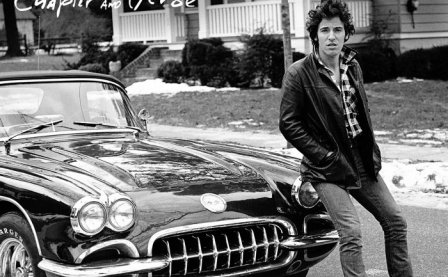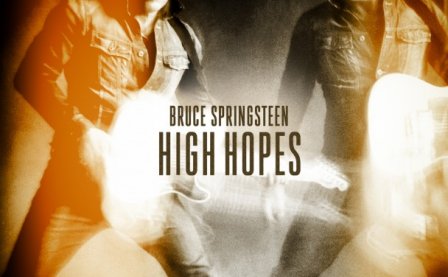What does America mean to you?
For our international readers, answering that question may be a purely intellectual exercise, but for those of you out there who, like me, were born and raised right here in the U.S. of A., forming a response probably isn’t so simple. We of generation 9/11 have a complicated relationship to patriotism. We were ushered into adulthood by the terrified exaltation that accompanied our vast and fragmented nation setting aside those things that divided it to rally around the victims of an unthinkable atrocity. And, of course, we remember all too clearly how unscrupulous politicians manipulated our bonds of shared tragedy to catapult us into one and then another war. We remember how patriotism transformed, seemingly overnight, into a cudgel for flogging anyone who would not march in lock-step with the administration. We spent 10 years watching reasoned debates of public policy take a back seat to diatribes against politicians refusing to wear flag pins on their lapels. You’ll understand if outward displays of patriotic fervor make us a little uncomfortable.
But “patriotism” and “jingoism” are not the same thing, and loving something — be it a person or a country — does not mean showing support for its every action, no matter how morally reprehensible or self-destructive. And that gets to the heart of why Bruce Springsteen appeals to me. The man has made a career out of calling America out on its shit, shining a spotlight on society’s losers and the casualties of the American dream. But the thing that gives his most bitter material such force is not some deep-seated antipathy toward the land of his birth; it is his unshakeable certainty that we are better than this.
Where are the eyes, the eyes with the will to see?
Where are the hearts that run over with mercy?
Where’s the love that has not forsaken me?
In Springsteen’s vision of America, “liberty” is not the freedom to eke out an existence by tooth and claw in a Hobbesian wilderness, but the freedom to give of ourselves to our fellow man and woman, the freedom to extend a helping hand to those who are, for the moment, unable to help themselves. In a political climate where presidential candidates tell sick children that their well-being is a secondary concern to making sure that drug companies have enough incentive to keep making medicine, Springsteen’s assertion that “we take care of our own” stings like a look of disappointment from some beloved authority figure from our childhood.
Wrecking Ball, then, gains its potency from the mingling of Springsteen’s working class outrage and his firm belief in the compassion of our nation and its sufficiency to meet any challenge that we face. The Boss still has a talent for disguising his most trenchant material in the friendliest of exteriors. “Easy Money” is nearly a match for “Born in the USA” as a vehicle for veiled indignation. The song begins as a raucous night on the town, but changes course as the narrator alludes to financial woes and the “fat cats” amused by his struggles. Things take a very dark turn when the speaker proclaims, “I got a Smith and Wesson .38/ I got a hellfire burning/ Man I got me a date/ Got me a date on the far shore/ It’s bright and sunny/ I’m going on the town now looking for easy money.” A sense of disenfranchisement is almost universal among the characters that populate the album, and they meet it with a smorgasbord of emotions ranging from anger (“Shackled and Drawn”), resignation (“Jack of All Trades”), defiance (“Wrecking Ball”), and, perhaps most prominently, with faith (“Rocky Ground,” “Land of Hope and Dreams,” “We Are Alive”).
A fair amount has been written about the religious dimensions of Springsteen’s catalog. It’s a side of his work that has alienated him from some of the more stridently secular of our generation, which is a shame, because his spirituality lends his work a tremendous amount of compassion, moral acuity, and, perhaps most importantly in this context, an ethical basis on which to argue with his political opponents who decry the loss of Christian values in American society while doing all that is in their power to stop the government from carrying out one of the most fundamental of Christ’s commandments: to care for the least fortunate among us. On Wrecking Ball, Springsteen’s faith — to whatever degree he subscribes to one — offers an antidote to the despair that afflicts his characters and lends gravity to his most stern reproaches.
None of which is to say that this is a flawless album. The purported experimental content comes off a little awkwardly. The combination of bagpipes and medieval Scottish battle imagery that dominates “Death to My Hometown” feels cheesy and a little forced, and Michelle Moore’s rap at the end of “Rocky Ground,” while pretty enough in its own right, sits as uncomfortably next to Springsteen’s vocals as this scene should sit with anyone with good taste. Furthermore, as other critics have pointed out, Wrecking Ball lacks the finer observational detail of Springsteen’s most iconic works. The people and places that form the fabric of songs like “Highway Patrolman,” “Jungleland,” or “You’re Missing” are fully realized, flesh-and-blood creations. Not even Wrecking Ball’s best songs show that level of poetic detail.
But the balance of gold to dross still makes this album a keeper. The first three tracks are some of the best straight-up rock songs that The Boss has released in the past decade, and the title track and “Land of Hope and Dreams” will contain special significance to long-time fans for containing the final sax solos of the dear, departed Clarence Clemons, who passed away last summer.
In his essay on the religious themes of Springsteen’s work, scholar Jim Cullen very eloquently stated, “When I listen to Bruce Springsteen, I remember how to be an American.” This, more than anything, sums up why I am so fond of Wrecking Ball, in spite of its imperfections. You can wax cynical about a millionaire songwriter taking it upon himself to be the balladeer of the downtrodden, but Wrecking Ball is a much-needed reminder that the desire for a government that provides for those who are most in need and holds its wealthiest citizens accountable for their actions is not some fringe-leftist utopian pipe dream but a fundamental part of what makes this nation great.
So what is America to me? America is a country still learning new ways to live up to the audacious promise upon which it was founded. And may we keep learning for many ages to come.
More about: Bruce Springsteen




